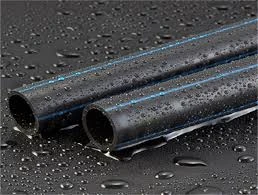Nov . 13, 2024 05:03 Back to list
hdpe water supply pipe
The Role of HDPE Water Supply Pipes in Modern Water Infrastructure
In recent years, the importance of efficient, robust, and environmentally friendly materials in water supply systems has gained significant attention. Among these materials, High-Density Polyethylene (HDPE) pipes have emerged as a popular choice for water supply applications. This article explores the features, benefits, and applications of HDPE water supply pipes, highlighting their pivotal role in modern water infrastructure.
Understanding HDPE
HDPE is a thermoplastic polymer made from petroleum. Its molecular structure provides several advantages, including high strength, flexibility, and resistance to impact and corrosion. These characteristics make HDPE an ideal material for various applications, particularly in the construction of water supply pipes. HDPE pipes are available in various diameters and are designed to meet a range of pressure requirements, making them suitable for both residential and municipal water systems.
Advantages of HDPE Water Supply Pipes
1. Durability and Longevity One of the key benefits of HDPE pipes is their exceptional durability. They are resistant to corrosion, which allows them to withstand harsh environmental conditions and aggressive soils. Unlike traditional materials such as metal or concrete, HDPE pipes do not rust or corrode, leading to reduced maintenance costs and increased lifespan.
2. Chemical Resistance HDPE is resistant to various chemicals, making it suitable for transporting potable water. This property ensures that the quality of water remains unaffected during transportation, which is critical for public health and safety. Furthermore, HDPE pipes can be used for wastewater management without the risk of leaching harmful substances into the environment.
3. Flexibility and Weight HDPE pipes are lightweight compared to traditional materials. This ease of handling reduces transportation and installation costs. Additionally, the flexibility of HDPE allows it to adapt to changing ground conditions, reducing the likelihood of damage during soil movements or external loading.
hdpe water supply pipe

4. Joint Integrity HDPE pipes can be joined using heat fusion techniques, creating a seamless and strong connection that prevents leaks. This joint integrity is crucial for maintaining the efficiency of water supply systems and minimizing the risk of water loss due to leaks.
5. Environmental Impact With a growing emphasis on sustainability, HDPE pipes stand out as an environmentally friendly option. They are recyclable, which significantly reduces the environmental footprint associated with their production and disposal. Moreover, their longevity means fewer replacements and less waste over time.
Applications of HDPE Water Supply Pipes
HDPE pipes are utilized in various applications, from residential plumbing to large-scale municipal water supply systems. In urban areas, they play a crucial role in distributing potable water to households and businesses. Their reliability and low maintenance requirements contribute to efficient water management in densely populated regions.
In rural areas, HDPE pipes provide a viable solution for water supply and irrigation systems. Their flexibility allows for installation in challenging terrains, ensuring that even remote communities have access to clean water. Additionally, HDPE pipes are used in stormwater management systems, where their resistive properties help mitigate flooding and manage rainwater effectively.
Conclusion
The integration of HDPE water supply pipes into modern water infrastructure is a testament to the evolving needs of our society. As urbanization and population growth continue to strain existing water systems, the demand for durable, flexible, and environmentally friendly materials becomes increasingly critical. HDPE pipes not only meet these demands but also set a standard for innovation in water supply solutions.
In summary, HDPE water supply pipes are an indispensable component of contemporary water management. Their durability, chemical resistance, and eco-friendliness provide significant advantages over traditional materials, making them the preferred choice for engineers and environmentalists alike. As we look to the future, the continued adoption of HDPE in water supply infrastructures promises to foster a sustainable approach to resource management, ensuring clean and reliable water access for generations to come.
-
Durable PP Rigid Sheet: Lightweight, Chemical Resistant Solutions
NewsAug.21,2025
-
PVC Grey Sheet for Extraction: Chemical Resistant & Durable
NewsAug.19,2025
-
Durable PVC Pipe Fittings for Plumbing & Irrigation Needs
NewsAug.18,2025
-
HDPE Steel Belt Reinforced Spiral Corrugated Pipe | High Strength
NewsAug.17,2025
-
HDPE Pipe Fittings: Durable, Leak-Proof Solutions
NewsAug.16,2025
-
Premium CPVC Sheet: High-Temp & Chemical Resistant Solutions
NewsAug.15,2025

